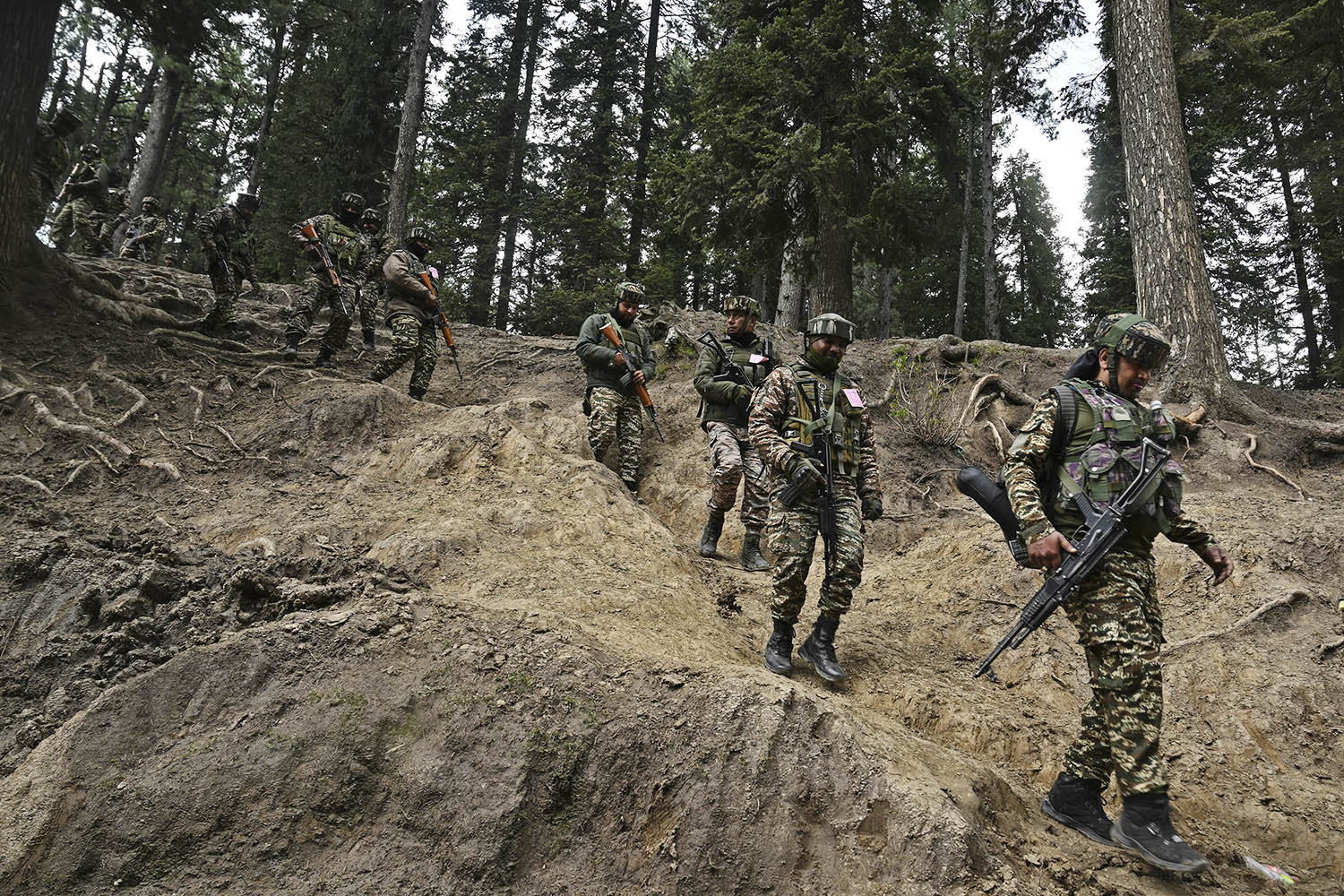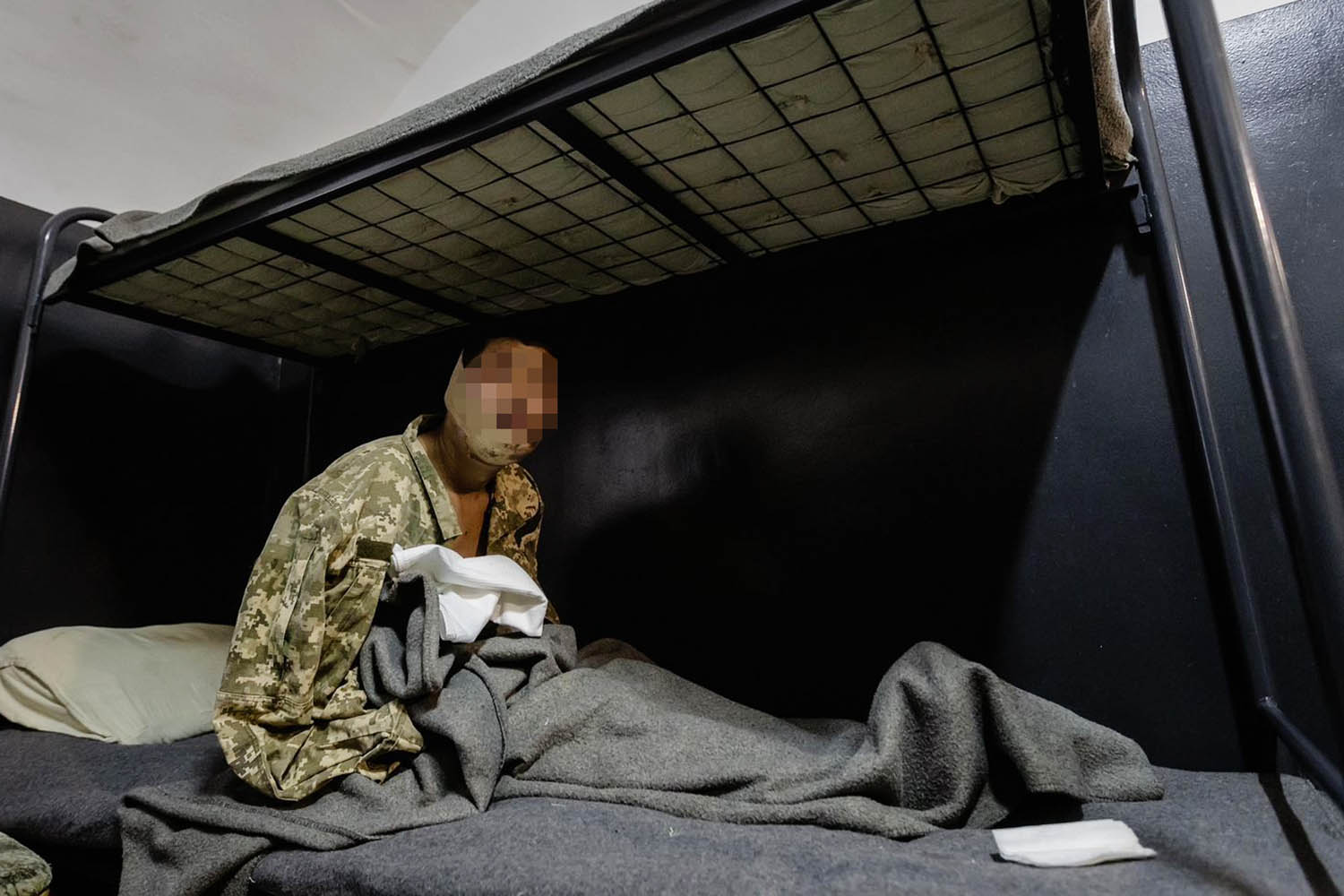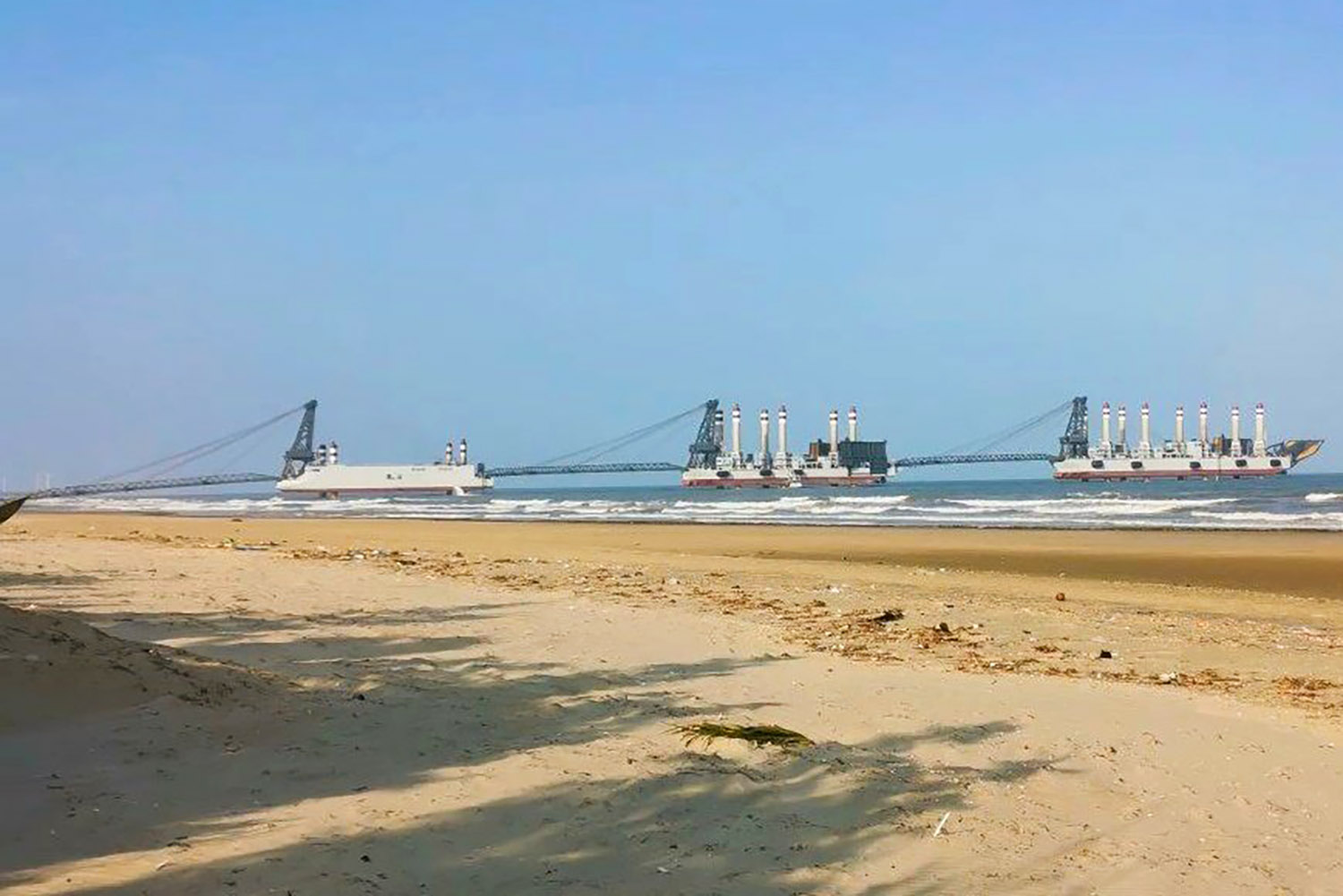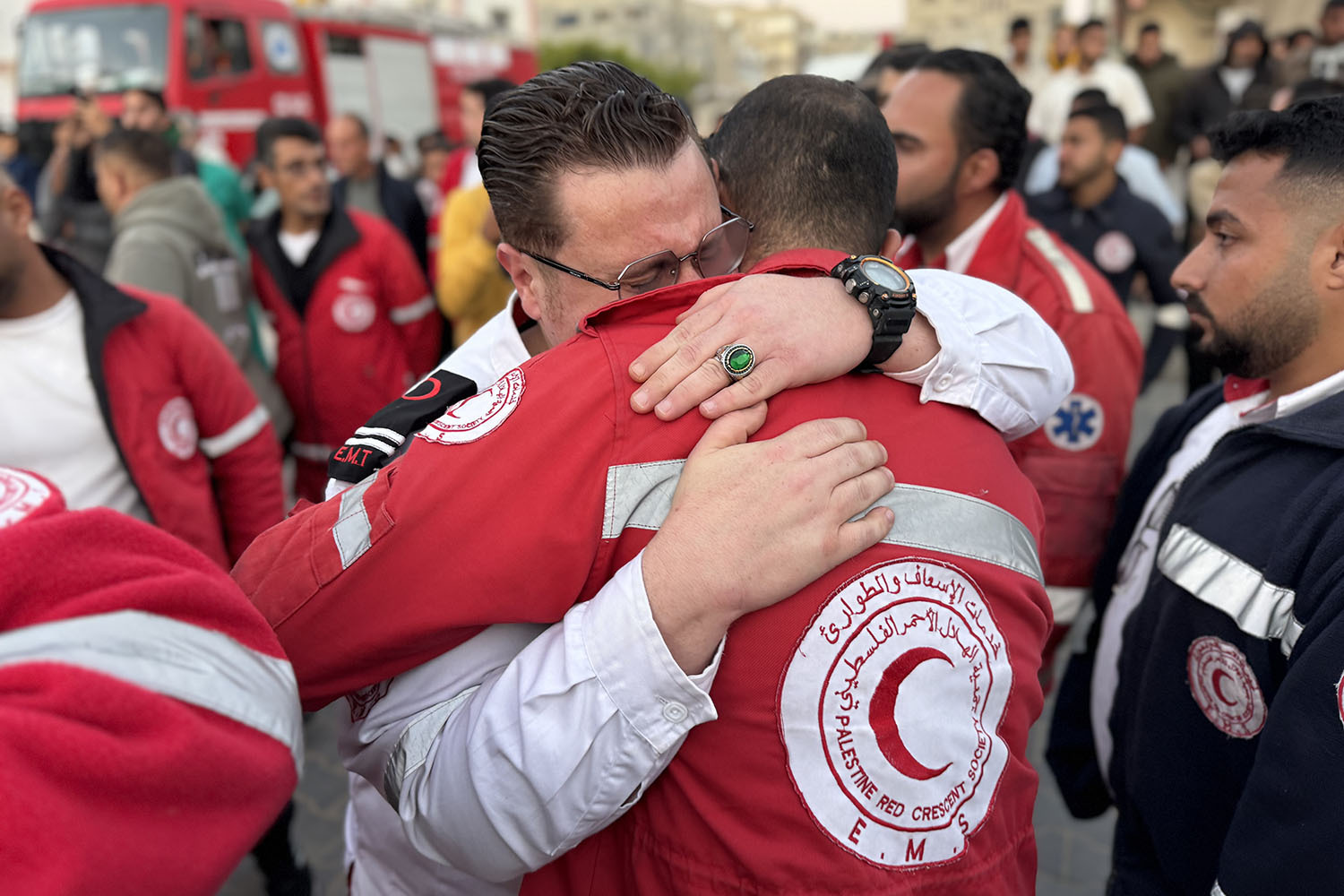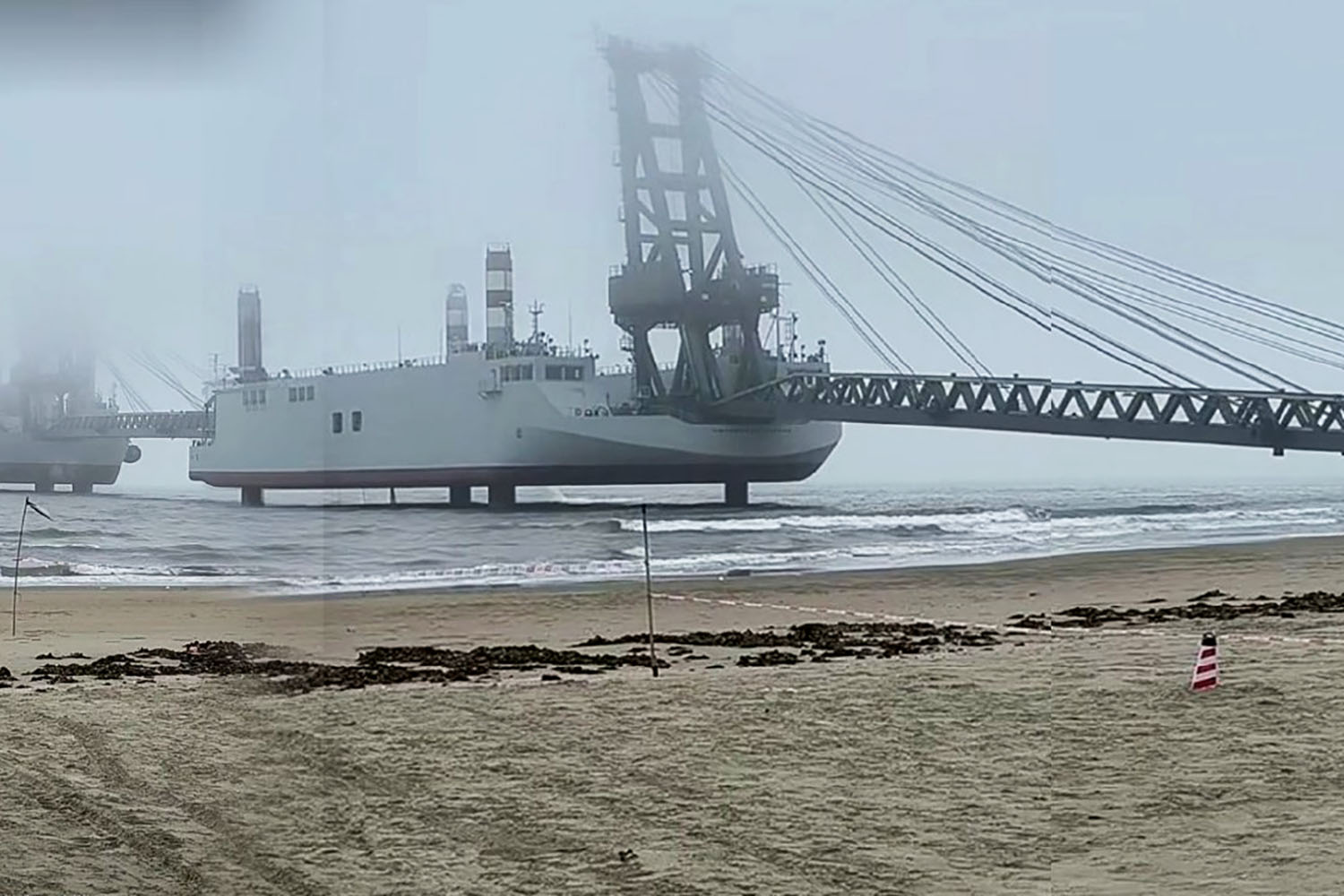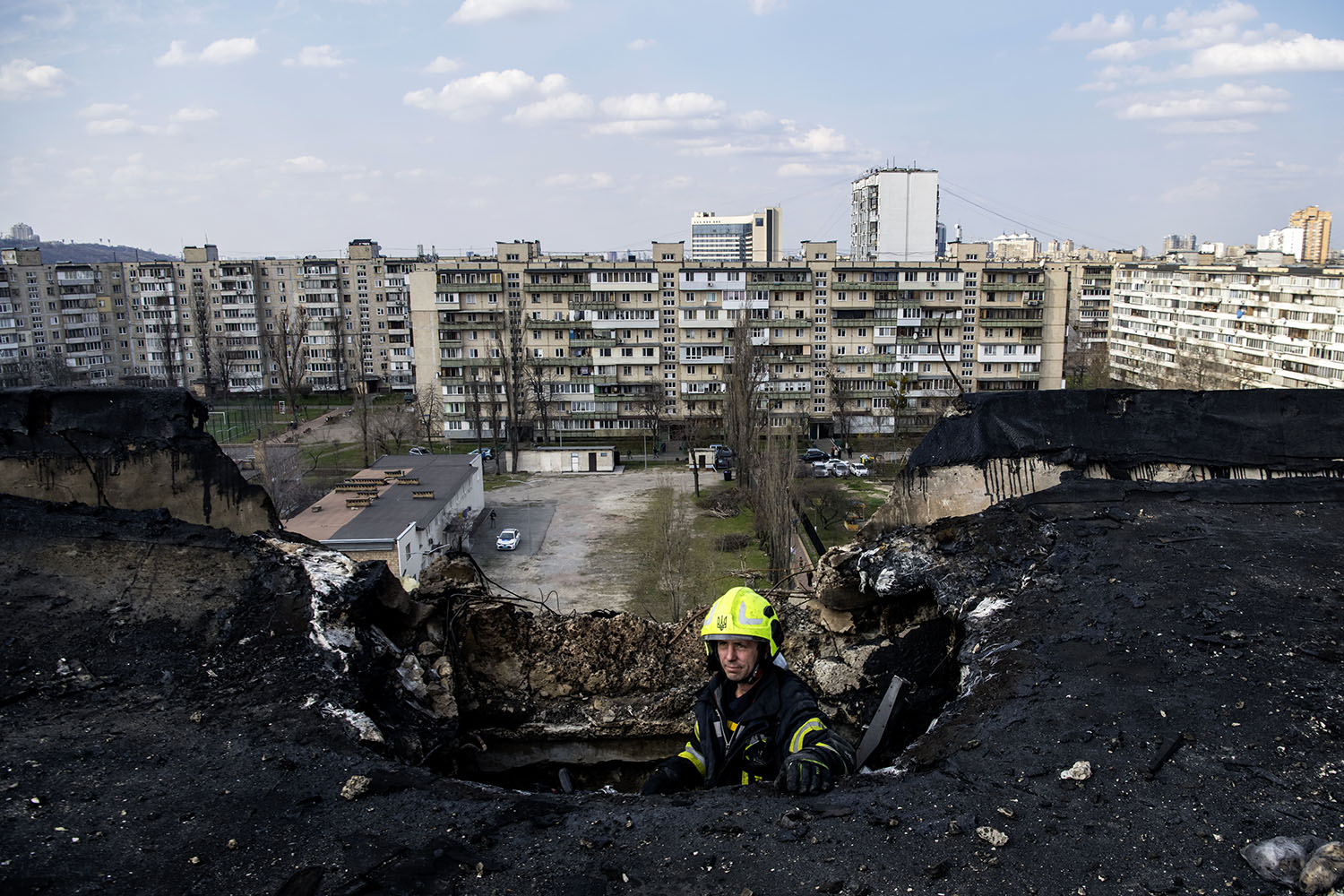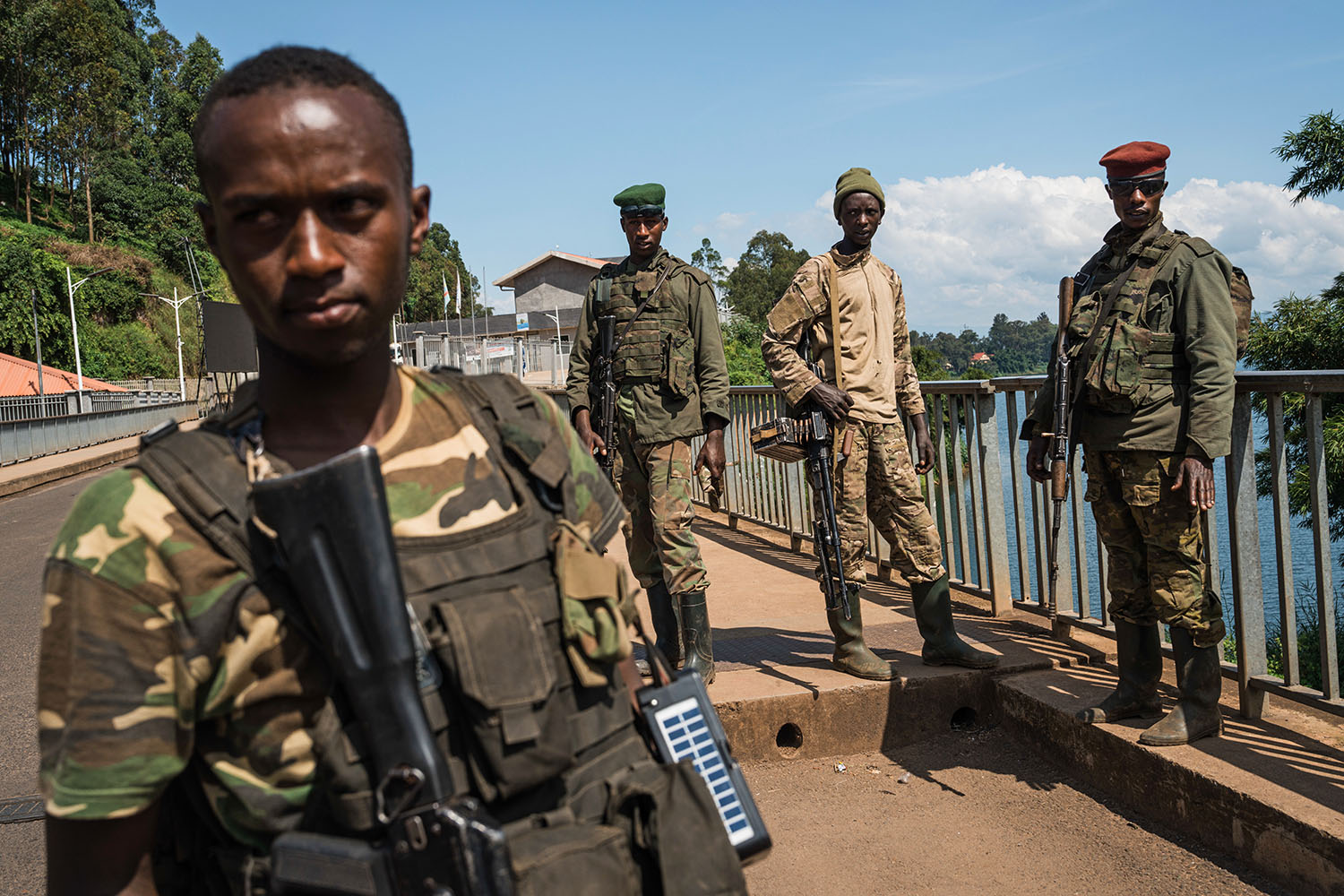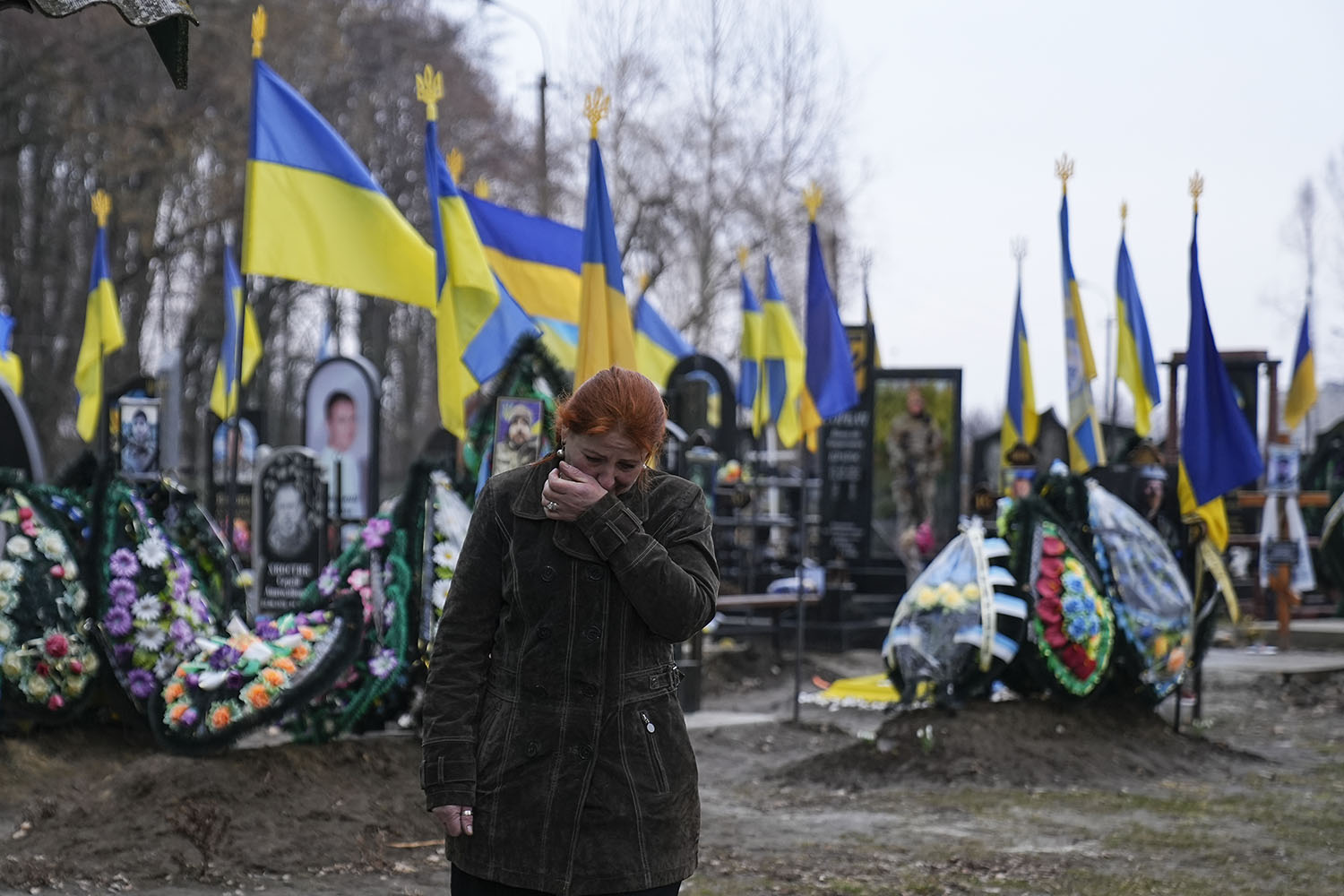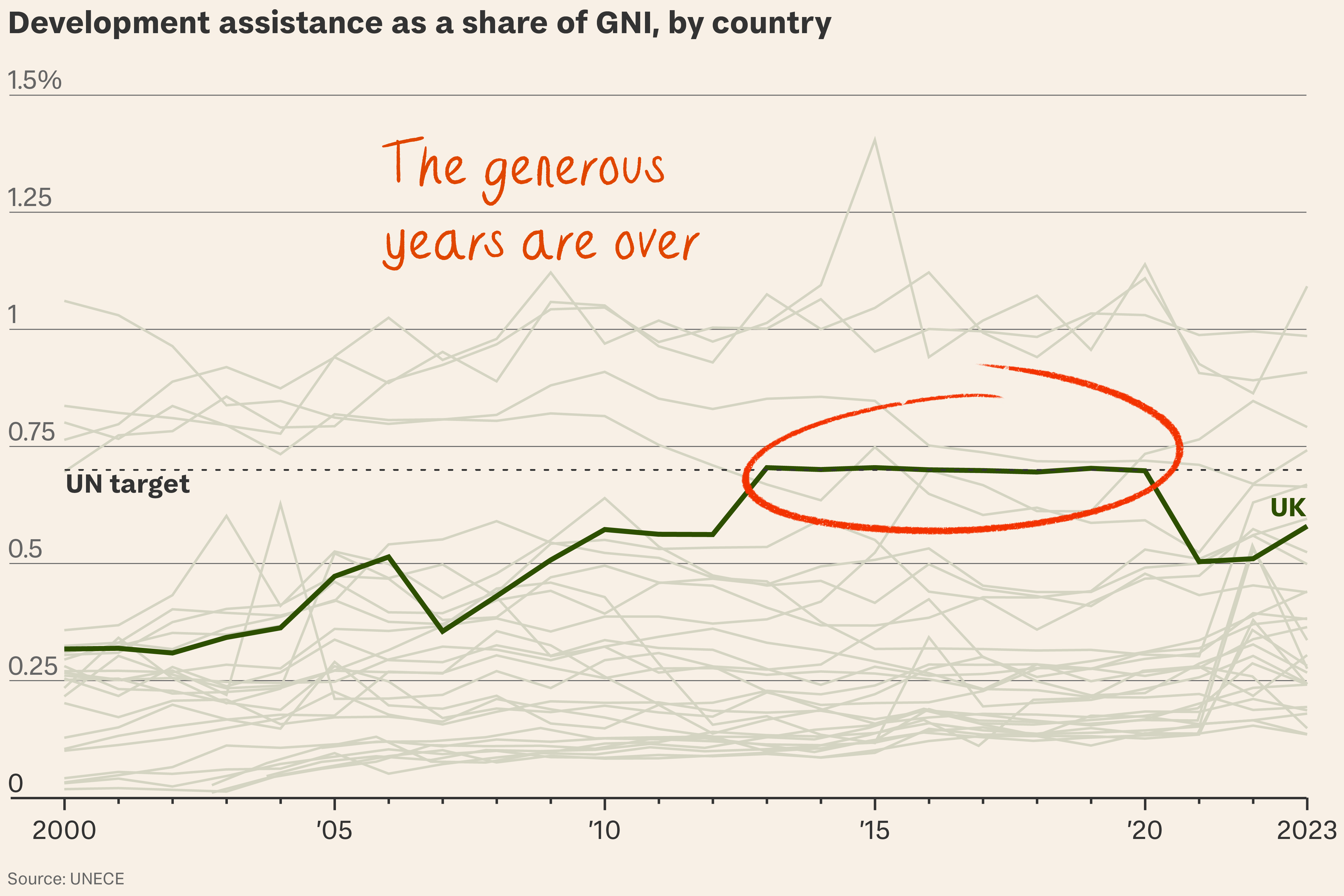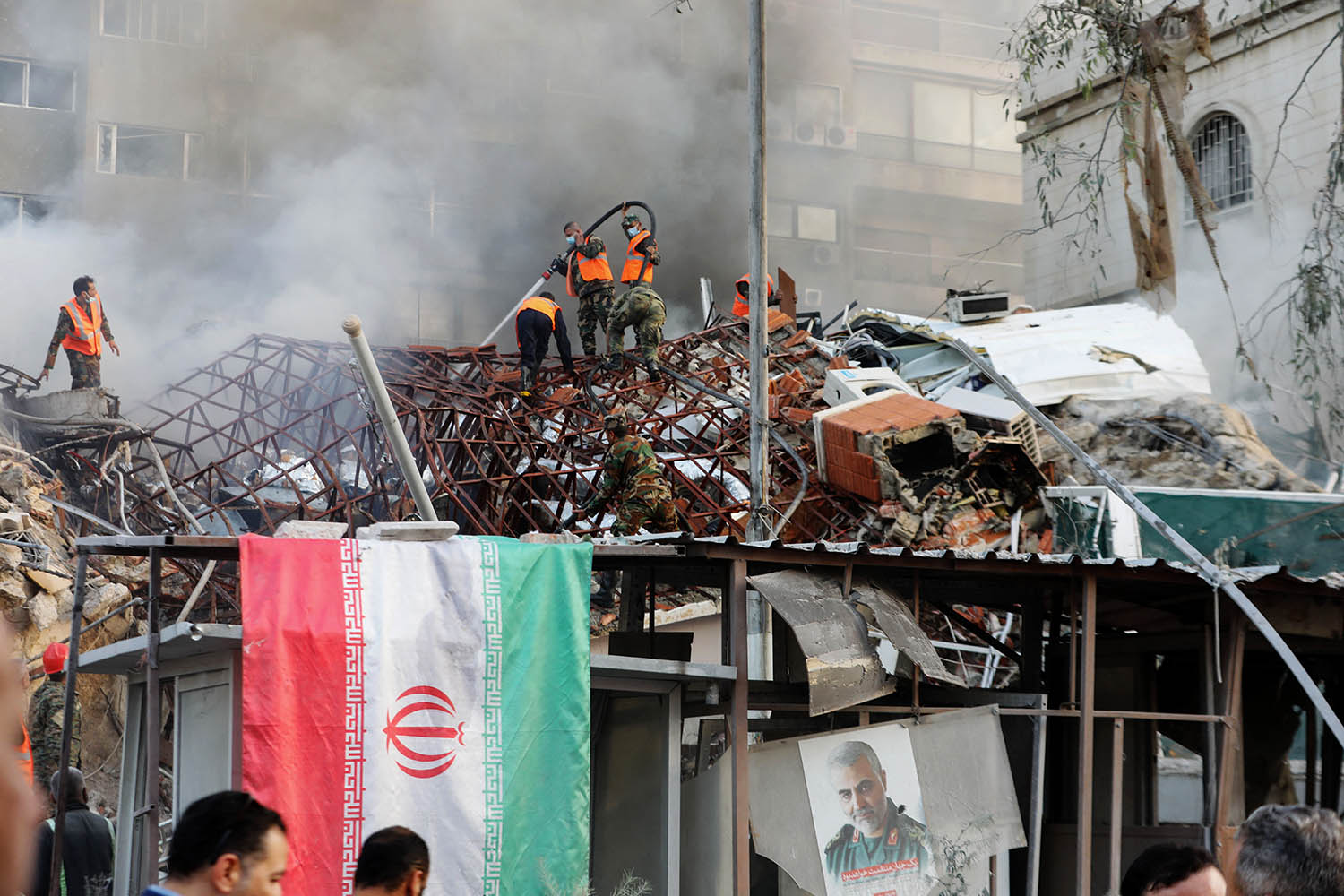
Israel’s allies say it has to stop fighting, but for Netanyahu there’s a logic to carrying on.
Iran has said it will respond at a time of its choosing to Israel’s strike on Monday on its embassy compound in Damascus. It added a warning: that the US was “answerable” for the attack.
So what? An airstrike on a foreign embassy is astonishingly high-risk, even for a country already at war. For what reward? There are three possible explanations:
- Escalate. The most hawkish members of Benjamin Netanyahu’s war cabinet may hope to drag the US into a wider conflict with Iran, even though there’s no sign the White House wants one.
- Deter. Netanyahu may have wanted to deter Iran from encouraging its proxies – especially Hezbollah but also the Yemen-based Houthis menacing shipping in the Red Sea – from stepping up attacks on Israel.
- Eliminate. Targets of convenience in the embassy included Iran’s General Mohammed Reza Zahedi, a key liaison between Tehran and non-state forces backed by Iran in Gaza, Yemen, Iraq, Syria and Jordan.
Strategy, what strategy? Zahedi was killed along with two other Iranian generals and four officers. So in a narrow sense, the attack worked. It was also “incredibly reckless” and could backfire, an ex-CIA Middle East officer tells the NYT. That prompts the question whether it fits into a broader Israeli strategy, or whether that strategy is unravelling as allies race to dissociate themselves from not one but three pivotal developments in the war: the Damascus raid, the killing of seven aid workers in Gaza and the destruction of Gaza’s al-Shifa hospital.
The answer depends on the perspective. On balance there is more solidarity within Israel behind Netanyahu’s war aims than his leadership.
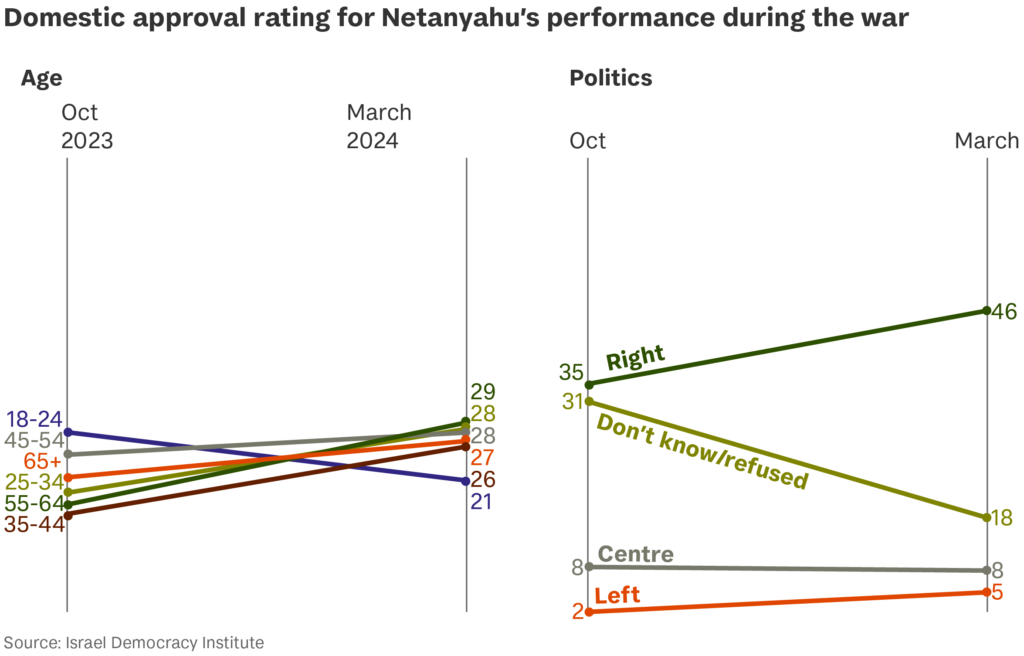
Netanyahu. Israel’s prime minister is increasingly at odds with the Americans but reliant as ever on US weapons. Even his followers are beginning to suspect his stated aim of “total victory” over Hamas is cover for his real aim of a “forever war” to postpone a reckoning on the policy, military and intelligence failures leading to October 7.
War cabinet. Israel’s ministers include rivals for Netanyahu’s job but few public critics of his strategy. His defence minister, Yoav Gallant, was quickest to say last year that food, fuel and power should be denied to Gaza. Isaac Herzog, Israel’s president, held the “entire [Palestinian] nation” responsible for the October 7 attacks, and retired general Benny Gantz is as eager as Netanyahu for Israel’s army to advance now on Rafah.
Voters. As of February, 63 per cent of Jewish Israelis opposed the creation of an independent, demilitarised Palestinian state, according to a poll for the Israel Democracy Institute. In January, nearly 60 per cent believed the steeply rising casualty rate in Gaza was justified and a majority thought their troops were using adequate or too little force.
The press. Israel’s mainstream media seldom gives Palestinians a platform, Mairav Zonszein of the International Crisis Group writes in Foreign Policy, or challenges the statements of the Israeli army.
That said… Gantz called yesterday for national elections in September to enable Israel’s citizens “to renew their trust in us” – a trust tested to destruction by October 7 and the failure to secure the release of all Hamas hostages since then.
What’s more. At home Netanyahu is facing mounting restiveness from families of the 134 hostages still held by Hamas in Gaza – at least 31 of whom and perhaps many more are now feared dead. On Tuesday there were violent clashes near Netanyahu’s house in Jerusalem between police and protesters who believe the hostages’ release is a lower priority for Netanyahu than securing some tangible sign of victory over Hamas.
What’s next. Iran’s Supreme Leader has promised to make Israel regret bombing the embassy in Damascus. Hezbollah, his local proxy, has up to 100,000 missiles in its arsenal, many of them already trained on Israel from the north.
Further listening: Our three-part podcast The State of Netanyahu
More than 70 countries are holding elections this year, but much of the voting will be neither free nor fair. To track Tortoise’s election coverage, go to the Democracy 2024 page on the Tortoise website.
